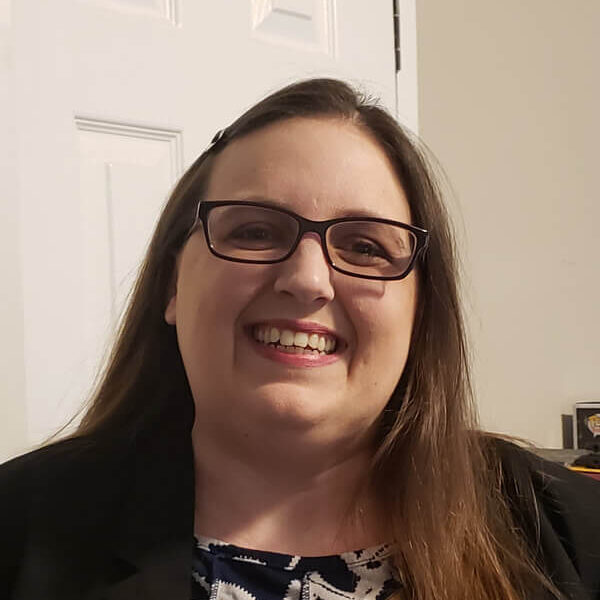I grew up knowing that I wanted to be a professional Anthropologist. However, neither of my parents had attended college, let alone earnt a Master’s of Public Administration (MPA) or attempted to earn a doctorate, so whilst I knew what I had to do to become an Anthropologist, it all seemed unrealistic given how I had grown up. In addition, even though I was always good at school, it took a lot of effort, and as I attended one of the poorest high schools in my district, I felt that I would never get to become the Anthropologist I had always wanted to be. Furthermore, I didn’t do well in my SATs and when I applied to graduate school, I did poorly on my graduate school entrance exam as well.
Thus, it has taken me 10 years after graduating with my BA to have finally been accepted into a PhD school. Even though it has been a tough but rewarding journey, I constantly struggle with imposter syndrome, and anytime I don’t understand something, I immediately think, “this is exactly why I have no business earning a PhD!”
Consequently, the first thing I learnt this year was that, although I was always excellent at English and reading throughout primary and secondary school (5 years old to 18 years old) and even through undergraduate and MPA classes, PhD reading was by far harder than anything I could have imagined. For example, I used to be top of my English class in high school, but growing up poor, I didn’t really interact with highly educated people. Therefore, during the first year of my PhD, as I was reading and listening to other students in discussions, I realized that I didn’t have the vocabulary to keep up with them. Thus, I was constantly having to look up words that I’d never seen before, and again, the imposter syndrome kicked in and told me that I was clearly not smart enough for a PhD.
Additionally, even though the vocabulary is hard, the amount of reading is even harder. I can look up words that I don’t know, but I can’t create extra hours in the week for reading, and in addition to my PhD program (taking two classes at a time), I also have a full-time career. With that in mind, I really only had time before work and the weekends to read and complete all my writing assignments. In my first semester I was reading about 600 pages per week! It was nearing impossible, and as I didn’t learn speed reading techniques in any of my previous schooling, nor how to effectively take notes about what I’m reading, I struggled. Again, the imposter syndrome kept telling me that I would never be successful because I clearly couldn’t read, and I wasn’t smart enough to earn a PhD.
This all meant that it would take me hours upon hours to read the content, as I was constantly having to stop reading to look up what words meant. Thus, I kept having to read and reread sentences and paragraphs because they made no sense to me. In class discussions, I was literally just ‘winging it’, and my professors told me that I should engage more with the theoretical aspects of the reading rather than the topical, but I had no experience or knowledge of the theoretical.
Finally, after a month of struggling, I met with one of my professors for tips on being successful in their class, and what they told me revolutionized the way I read.
• Do not read every single word! Skim the works to highlight new words, theories, and examples.
This one tip made reading a lot more reasonable. Though whilst I was somewhat able to read faster (this method takes A LOT of practice!), I was still struggling to have engaging conversations based on the readings. Hence, throughout my first year, I have learnt that my PhD program is much more about asking intriguing questions than having all the answers. I understood that asking the right questions would open the door for in depth conversations that would benefit everyone.
However, I had no idea how to ask these types of questions and I wasn’t understanding the material enough to develop such inspiring questions. Therefore, I again turned to my network for assistance, and I reached out to a fellow PhD student who was adjunct faculty (part-time professors) and working on her dissertation. Her tips had some of the biggest impacts on my ability to ask the right questions!
• As you read, write your notes in the margins. Your notes aren’t necessarily notes on the content but rather on your stream of consciousness. Write down exactly what you’re thinking about when you’re reading (e.g., what you think about it and how you think about it).
• As for reading speed, where possible, only read: the title of the article, the abstract, the conclusion, the discussion, then the headers. If a particular paragraph seems interesting, read the paragraph in full but otherwise skip it.
This first tip heightened my critical thinking skills, and I’m now able to connect pieces of work across disciplines, and even classes. Furthermore, I’m able to draft excellent questions, even if I don’t fully understand the material. This stream of consciousness has given me the ability to think more critically about what I’m reading which is enhancing my ability to understand the material. Even though I still don’t understand everything, and I still have to look up a lot of words, I’m improving with each piece I read.
On the other hand, the second tip has really impacted my reading speed, and I’ve been able to cut my reading time down by at least half. However, for me the biggest challenge with this tip is that it only works on articles that follow the format of a current day research paper with headers, a discussion section, and a methodology section. I’m finding that articles written throughout the 1980s don’t always follow this writing structure, and in these cases, I’m having to revert back to the first tip that I was given.
Overall, my first year as a first-gen PhD student has been an incredible experience. I encounter imposter syndrome all the time, but I’ve found that having a support system (even one that you must work to create) is one of the most beneficial things. I am a naturally introverted person so I really had to step out of my comfort zone to build that support system, but I now have numerous people I can turn to when I’m struggling, and they help with the imposter syndrome too! In addition, I have also found that when I ask for help, especially from fellow students, oftentimes they’re just as lost and confused as I am. It really helps the imposter syndrome to know that if these super smart people are lost, there is hope for me after all.
In summary, here are my biggest tips for getting through your first year as a PhD student (and for getting through the rest of the years too!):
• Do not read every single word! Skim the works to highlight new words, theories, and examples.
• Where possible, only read: the title of the article, the abstract, the conclusion, the discussion, then the headers. If a particular paragraph seems interesting, read the paragraph in full but otherwise skip it.
• As you read, write your notes in the margins. Your notes aren’t necessarily notes on the content but rather on your stream of consciousness. Write down exactly what you’re thinking about when you’re reading.
• Build a tribe of supporters: peers, more advanced students, professors.
• Enjoy!




